News
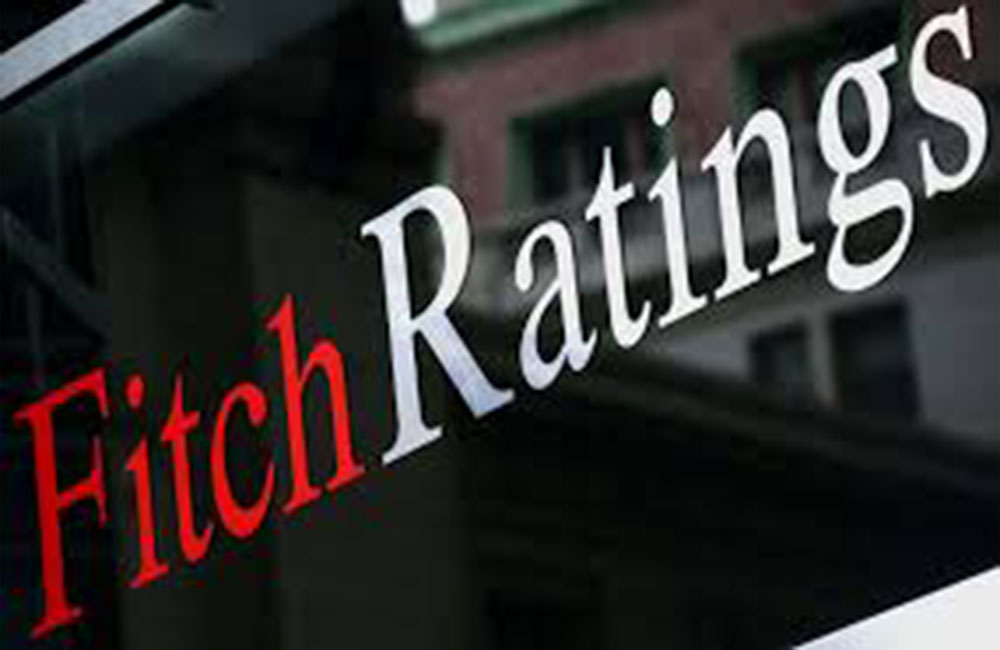
Fitch Ratings upgrades Sri Lanka’s long-term local-currency IDR to ‘CCC-’
Fitch Ratings has upgraded Sri Lanka’s Long-Term Local-Currency Issuer Default Rating (IDR) to ‘CCC-’ from ‘RD’ (Restricted Default). Fitch typically does not assign Outlooks to sovereigns with a rating of ‘CCC+’ or below. The Long-Term Foreign-Currency IDR has been affirmed at ‘RD’ and the Country Ceiling at ‘B-’.
The Short-Term Local-Currency IDR has been downgraded to ‘RD’ from ‘C’ following the exchange of treasury bills held by the central bank and subsequently upgraded to ‘C’ in line with the Sovereign Rating Criteria, as we believe the local-currency debt exchange has now been completed.
A full list of rating actions is at the end of this rating action commentary.
KEY RATING DRIVERS
Local-Currency Debt Exchange Completed: The upgrade of Sri Lanka’s Long-Term Local-Currency IDR to ‘CCC-’ reflects the completion of the local-currency portion of Sri Lanka’s domestic debt optimisation (DDO) plan, launched in July 2023, following the exchange of the Central Bank of Sri Lanka’s (CBSL) treasury bills and provisional advance into new treasury bonds and bills on 21 September 2023.
We assume the debt restructuring will lower Sri Lanka’s gross financing needs over the medium term, in line with the targets under the IMF’s Extended Fund Facility, and support an improvement in the country’s debt metrics over time. Local-currency restructuring could accelerate progress towards the restructuring of external debt.
Government Debt Remains High: General government debt and the interest costs faced by the government will remain high, despite the debt restructuring. Sri Lanka’s gross general government debt-to-GDP ratio is set to fall only gradually to just above 100% of GDP by 2028, from 128% of GDP in 2022, according to IMF programme forecasts published in March 2023, which incorporated a local- and foreign-currency debt restructuring scenario. The IMF scenario forecast the government interest-to- revenue ratio will decline to 42% by 2028, from over 70% in 2022.
Lower Financing Needs: The authorities expect the completion of the local-currency debt exchange to lower Sri Lanka’s gross government financing needs (GFN)/GDP by about 1.5pp over 2027-2032, according to documents published in July. External debt restructuring, which authorities expect to reduce GFN by an additional 2.6pp, remains critical to achieving the target of reducing GFN below 13% by 2027-2032, from 34% in 2022.
Reduction in Terms: The DDO on the local-currency debt entailed an extension of maturities on certain categories of domestic debt and offered several options, including nominal haircuts, currency redenomination and maturity extensions. Outstanding treasury bills purchased by the CBSL in the primary market were converted into 10 step-down fixed-coupon new treasury bonds and 12 existing treasury bills.
Stronger Revenue Generation Key: We believe IMF programme implementation, in particular fiscal measures, will be central to achieving debt sustainability. The risks remain significant, in our view, as a record of weak revenue generation presents challenges to achieving a faster reduction in the budget deficit and the general government debt-to-GDP ratio.
Authorities have taken several tax measures since May 2022 to improve revenue collection, including raising the corporate income tax rate to 30% from 24%, increasing the VAT rate to 15% from 8%, and raising fuel excise taxes. This resulted in revenue collection rising 43% yoy in 1H23. Additional measures in the pipeline include removing product-specific VAT exemptions before 2024 and introducing a property tax before 2025.
External Metrics Improving: Sri Lanka’s foreign-exchange (FX) reserves have been improving, with gross FX reserves rising to USD3.6 billion in August 2023, from USD1.9 billion at end-2022, partly the result of IMF disbursements and suspension of external debt servicing. However, without access to international capital markets, the sovereign remains dependent on official financing sources. We expect a gradual pick-up in exports in 2024-2025 after a contraction in 2023. Overseas worker remittance inflows are also rising. We therefore expect the current account deficit to stabilise at 1.6% of GDP over 2024-2025.
Slow Economic Recovery: GDP contracted by 2.7% yoy in 2Q23, slowing from the 12% contraction in 1Q23. Agriculture and services grew in 2Q23, but industry continued to shrink, although at a slower pace from 1Q23. We expect GDP to contract by 1.4% yoy in 2023 before growing by 3.3% and 3.5% in 2024 and 2025, respectively. Inflation, measured by the Colombo CPI, averaged around 30% yoy until August 2023 but continued the decline from end-2022. The CBSL has cut the standing deposit facility rate by a cumulative 350bp since January 2023. We expect another rate cut before end-2023.
Downside Risks to Banks Easing: The exclusion of banks’ holdings of treasury securities from the DDO has alleviated some of the pressure on their capital positions from weakening loan quality and rupee depreciation as well as any immediate funding and liquidity stresses. We believe any incremental risk to the banks’ capital from foreign-currency debt restructuring is likely to be manageable given their limited exposure to the defaulted sovereign bonds (3.6% of their combined total assets at end-1H23) and high provision coverage.
Foreign-Currency IDR in Default: The sovereign remains in default on foreign-currency obligations and has initiated a debt restructuring with official and private external creditors. The Ministry of Finance’s statement on 12 April 2022 said it had suspended normal debt servicing of several categories of external debt, including bonds issued in international capital markets, foreign currency-denominated loans and credit facilities with commercial banks and institutional lenders.
ESG – Governance: Sri Lanka has an ESG Relevance Score of ‘5’ for Political Stability and Rights as well as for the Rule of Law, Institutional and Regulatory Quality and Control of Corruption. These scores reflect the high weight that the World Bank Governance Indicators (WBGI) have in our proprietary Sovereign Rating Model (SRM). Sri Lanka has a medium WBGI ranking in the 45th percentile, reflecting a recent record of peaceful political transitions, a moderate level of rights for participation in the political process, moderate institutional capacity, established rule of law and a moderate level of corruption.
ESG – Creditor Rights: Sri Lanka has an ESG Relevance Score of ‘5’ for Creditor Rights, as willingness to service and repay debt is highly relevant to the rating and is a key rating driver with a high weight. The affirmation of Sri Lanka’s Long-Term Foreign-Currency IDR at ‘RD’ reflects a default event.
RATING SENSITIVITIES
Factors that Could, Individually or Collectively, Lead to Negative Rating Action/Downgrade
– The Local-Currency IDRs would be downgraded if further restructuring or a default on local-currency debt becomes probable due to an unsustainable debt burden or inability to raise revenue.
– The Long-Term Foreign-Currency IDRs are at the lowest level and cannot be downgraded further.
Factors that Could, Individually or Collectively, Lead to Positive Rating Action/Upgrade
– A sustained decline in the general government debt-to-GDP ratio that is underpinned by strong implementation of a medium-term fiscal consolidation strategy and improved growth performance.
– Completion of the foreign-currency commercial debt restructuring that Fitch judges to have normalised the relationship with private-sector creditors may result in an upgrade.
In accordance with the rating criteria for ratings in the ‘CCC’ range and below, Fitch’s sovereign rating committee has not used the SRM and QO to explain the ratings, which are instead guided by the agency’s rating definitions.
Fitch’s SRM is the agency’s proprietary multiple regression rating model that employs 18 variables based on three-year centred averages, including one year of forecasts, to produce a score equivalent to a LT FC IDR. Fitch’s QO is a forward-looking qualitative framework designed to allow for adjustment to the SRM output to assign the final rating, reflecting factors within our criteria that are not fully quantifiable and/or not fully reflected in the SRM
The Country Ceiling for Sri Lanka is ‘B-’. For sovereigns rated ‘CCC+’ or below, Fitch assumes a starting point of ‘CCC+’ for determining the Country Ceiling. Fitch’s Country Ceiling Model produced a starting point uplift of zero notches. Fitch’s rating committee applied a +1 notch qualitative adjustment to this, under the balance of payments restrictions pillar, reflecting that the private sector has not been prevented or significantly impeded from converting local currency into foreign currency and transferring the proceeds to non-resident creditors to service debt payments.
Fitch does not assign Country Ceilings below ‘CCC+’, and only assigns a Country Ceiling of ‘CCC+’ in the event that transfer and convertibility risk has materialised and is affecting the vast majority of economic sectors and asset classes.
REFERENCES FOR SUBSTANTIALLY MATERIAL SOURCE CITED AS KEY DRIVER OF RATING
The principal sources of information used in the analysis are described in the Applicable Criteria.
ESG CONSIDERATIONS
Sri Lanka has an ESG Relevance Score of ‘5’ for Political Stability and Rights as WBGI have the highest weight in Fitch’s SRM and are highly relevant to the rating and a key rating driver with a high weight. As Sri Lanka has a percentile rank below 50 for the respective governance indicator, this has a negative impact on the credit profile.
Sri Lanka has an ESG Relevance Score of ‘5’ for Rule of Law, Institutional & Regulatory Quality and Control of Corruption as WBGI have the highest weight in Fitch’s SRM and are therefore highly relevant to the rating and are a key rating driver with a high weight. As Sri Lanka has a percentile rank below 50 for the respective governance indicators, this has a negative impact on the credit profile.
Sri Lanka has an ESG Relevance Score of ‘4’ for Human Rights and Political Freedoms, as the Voice and Accountability pillar of the WBGI is relevant to the rating and a rating driver. As Sri Lanka has a percentile rank below 50 for the respective governance indicator, this has a negative impact on the credit profile.
Sri Lanka has an ESG Relevance Score of ‘5’ for Creditor Rights as willingness to service and repay debt is highly relevant to the rating and is a key rating driver with a high weight. Sri Lanka’s Long-Term Foreign-Currency IDR is ‘RD’ as the sovereign is in default on its foreign-currency debt obligations.
The highest level of ESG credit relevance is a score of ‘3’, unless otherwise disclosed in this section. A score of ‘3’ means ESG issues are credit-neutral or have only a minimal credit impact on the entity, either due to their nature or the way in which they are being managed by the entity. Fitch’s ESG Relevance Scores are not inputs in the rating process; they are an observation on the relevance and materiality of ESG factors in the rating decision. (FITCH)
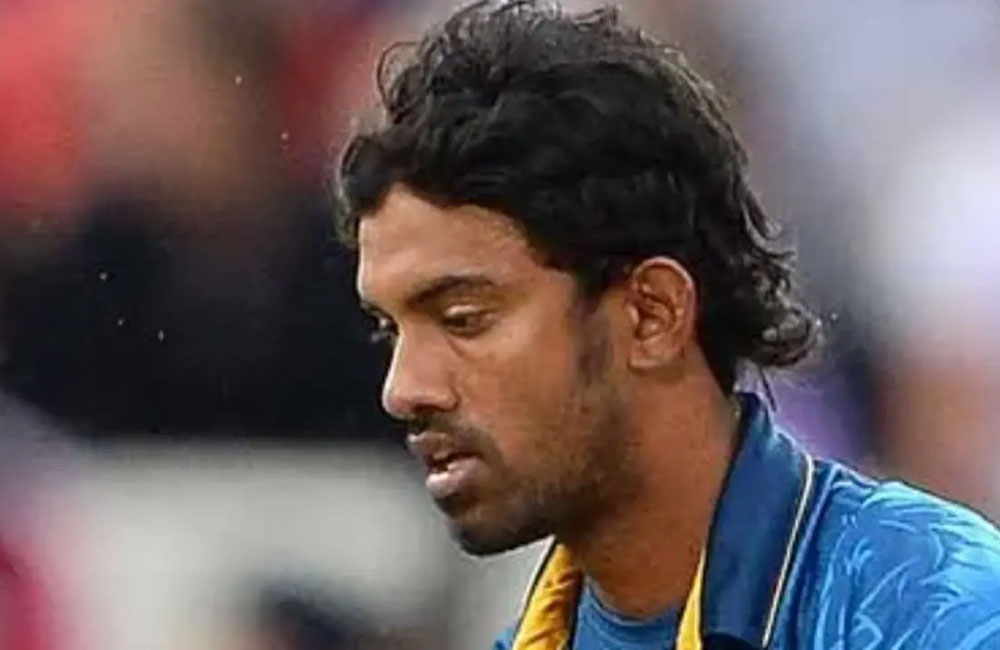
Ex-cricketer Sachithra Senanayake released on bail
Former Sri Lankan cricketer Sachithra Senanayake who was arrested and remanded over match fixing allegations, has been granted bail.
The former off-spinner was granted bail by the Colombo Chief Magistrates Court today.
Sachithra Senanayake was arrested earlier this month (Sep 06) after surrendering to the Special Investigation Unit of the Sports Ministry.
He is accused of trying to fix matches during the Lanka Premier League (LPL) in 2020. It is alleged that Senanayake had approached two cricketers in the first edition of the LPL in 2020 via telephone from Dubai to fix matches.
He was brought before the Government Analyst Department on September 13 for a voice test related to the audio tape received in connection to the match-fixing allegations. He was later remanded until today (Sep 25).
The former off-spinner has denied all the allegations, claiming them as baseless charges aimed at defaming him and his family.
Sachithra Senanayake (38) has played one Test, 49 ODIs and 24 T20 Internationals for Sri Lanka between 2012 and 2016.
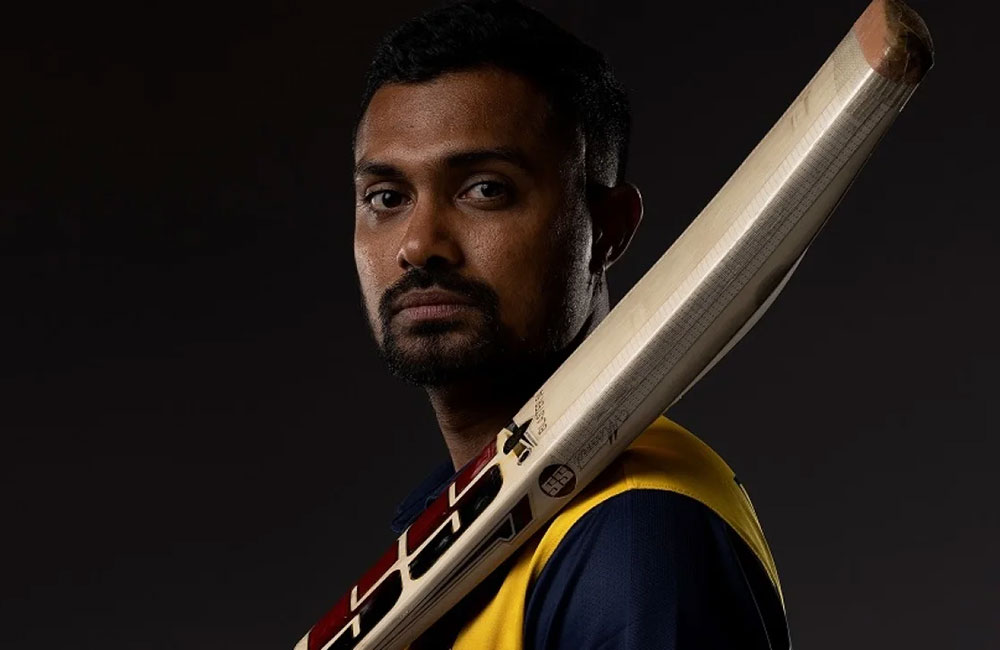
SLC considering lifting temporary ban on Danushka Gunathilaka
Sri Lanka Cricket (SLC) is considering lifting the temporary cricket ban imposed on cricketer Danushka Gunathilaka, who was acquitted by an Australian court over sexual assault charges today (28), according to sources.
Sri Lankan cricketer Danushka Gunathilaka was found not guilty of sexual intercourse without consent following an accusation of “stealthing” involving a Tinder date in Sydney.
The 32-year-old was arrested in November while in Australia for the T-20 World Cup, after he went for drinks with a woman near the Opera House. He had chatted online for several days and then had dinner with the woman, who can’t be identified for legal reasons, before being invited back to her eastern suburbs home, the NSW District Court heard.
Outside court, Gunathilaka said the verdict “says everything” and that his reputation had been restored.
He thanked his lawyers, manager, as well as friends and family back in Sri Lanka, saying “everyone believed me, so that means a lot to me”.
“I’m happy that my life is normal again, so I can’t wait to go back and play cricket,” he said.
The Sri Lankan cricketer said the last eleven months have been “really hard”, particularly being in Australia without his parents.
www.adaderana.lk
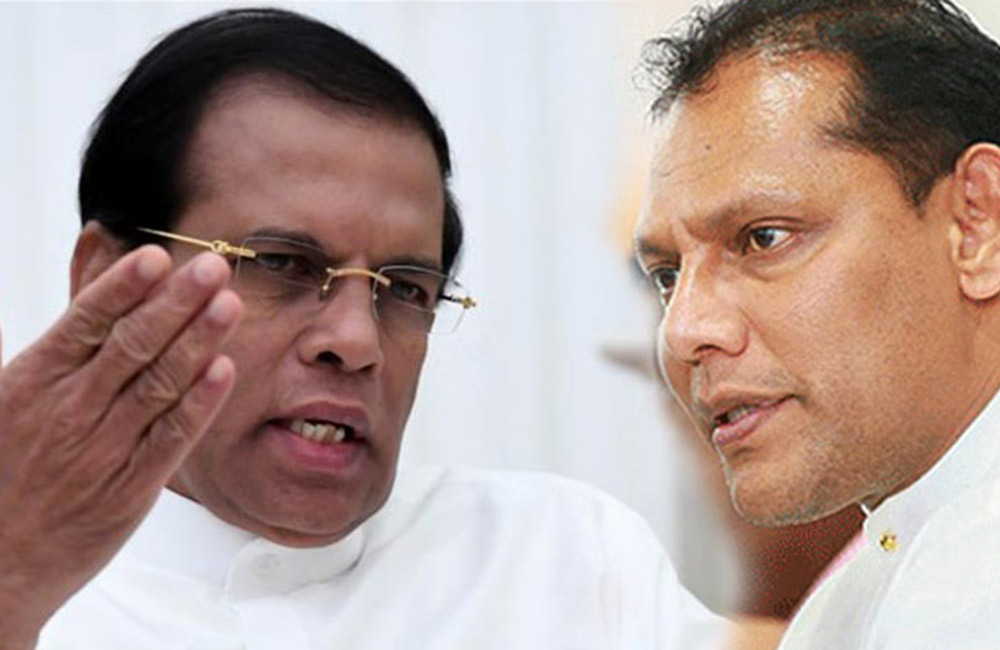
Dayasiri can return, but no positions - Maithri
The SLFP is ready to accept MP Dayasiri Jayasekara back to the party, but he will not be offered its chairmanship or general secretary position, said party leader Maithripala Sirisena.
Addressing party activists at party headquarters in Colombo yesterday (24), Sirisena explained the decision to remove Jayasekara as the general secretary.
He also asked members to prepare well in advance to face a year or elections in 2024.
Government ministers Nimal Siripala de Silva and Mahinda Amaraweera and MPs Duminda Dissanayake and Shan Wijayalal de Silva too, attended the meeting.
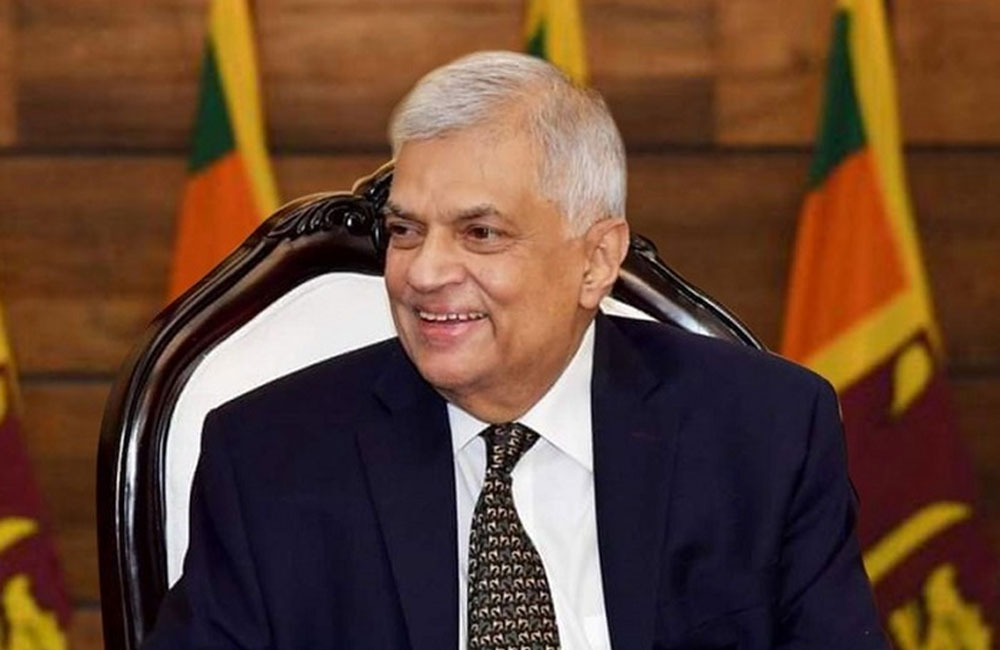
Five acting ministers appointed as President leaves for Germany
Several Acting Ministers have been appointed by President Ranil Wickremesinghe to oversee ministries under his purview during his official visit to Germany.
According to the President’s Media Division (PMD), the President left for Germany early this morning (Sep 27).
During his absence, the responsibilities of the ministries under his purview have been temporarily entrusted to the respective state ministers;
State Minister Premitha Bandara Tennakoon – Acting Minister of Defence
State Minister Shehan Semasinghe – Acting Minister of Finance
State Minister Kanaka Herath – Acting Minister of Technology
State Minister Anupa Pasqual – Acting Minister for Women, Children Affairs and Social Empowerment
State Minister Ranjith Siyambalapitiya – Acting Minister for Investment Promotion.
President Ranil Wickremesinghe left for Germany to deliver the opening remarks at the Leaders Dialogue session during the ‘Berlin Global Dialogue’ on September 28-29.
The PMD stated that subsequently, he will join a bilateral session with German Chancellor Olaf Scholz and the officials of the Federal Republic of Germany.
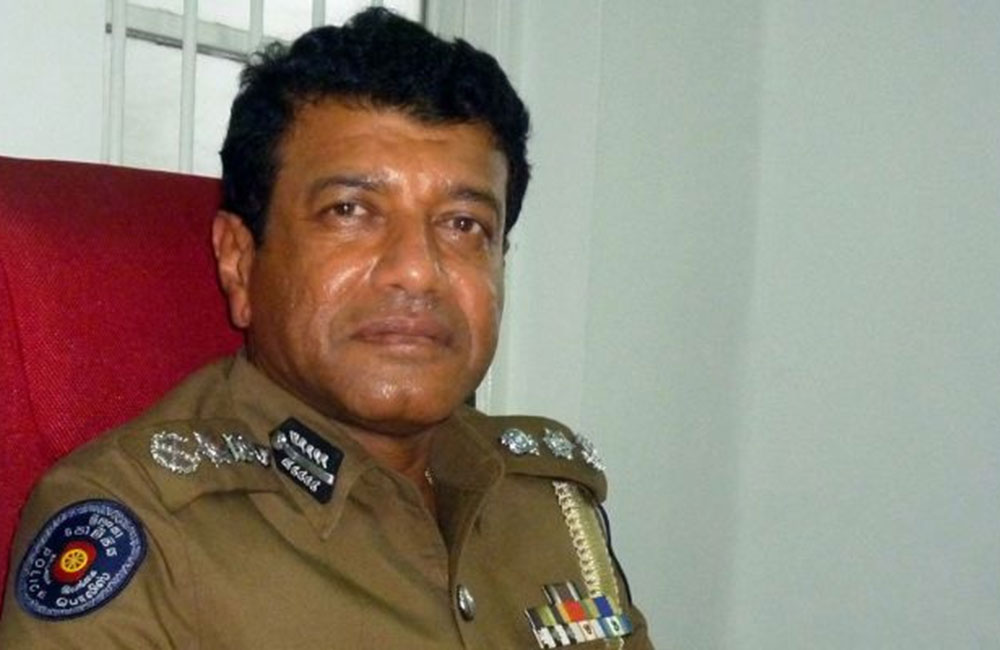
Ex-SDIG Lalith Jayasinghe sentenced to 5 years in prison
The Ratnapura High Court has sentenced former Senior Deputy Inspector General (SDIG) of the Sabaragamuwa Province, Lalith Jayasinghe to 05 years imprisonment, Ada Derana reporter said.
The relevant sentence was delivered today in case filed against the former Senior DIG for influencing the Kahawatte Police OIC to refrain from arresting MP Premalal Jayasekera in connection with a shooting incident targeting a group of people who were assembling a platform for a political event in Ratnapura, in the lead-up to the 2015 Presidential Election.
On January 05, 2015, the Pelmadulla Magistrate issued an arrest warrant on MP Jayasekara and several local politicians over their alleged involvement in the shooting incident at a venue of an election rally of former President Maithripala Sirisena who was the common opposition candidate at that time.
A political supporter, who was engaged in decorating an election stage, was wounded in the shooting and succumbed to injuries in hospital on January 08.
Former Deputy Minister Premalal Jayasekara, former Sabaragamuwa PC member Nilantha Jayakody and former Kahawatta PS chairman Vajira Darshana were arrested in January 2015 over the incident, whereas MP Jayasekara was later released on bail in December that year.
In July, 2020, Jayasekara and the other two accused were sentenced to death over the fatal shooting incident. The verdict in the case had been delivered by the Ratnapura High Court.
However, later in March 2022, the Court of Appeal acquitted MP Premalal Jayasekara and two others of charges pertaining to the relevant shooting incident, since there was no evidence of the three accused being in possession of firearms at the time of the incident and them firing shots.
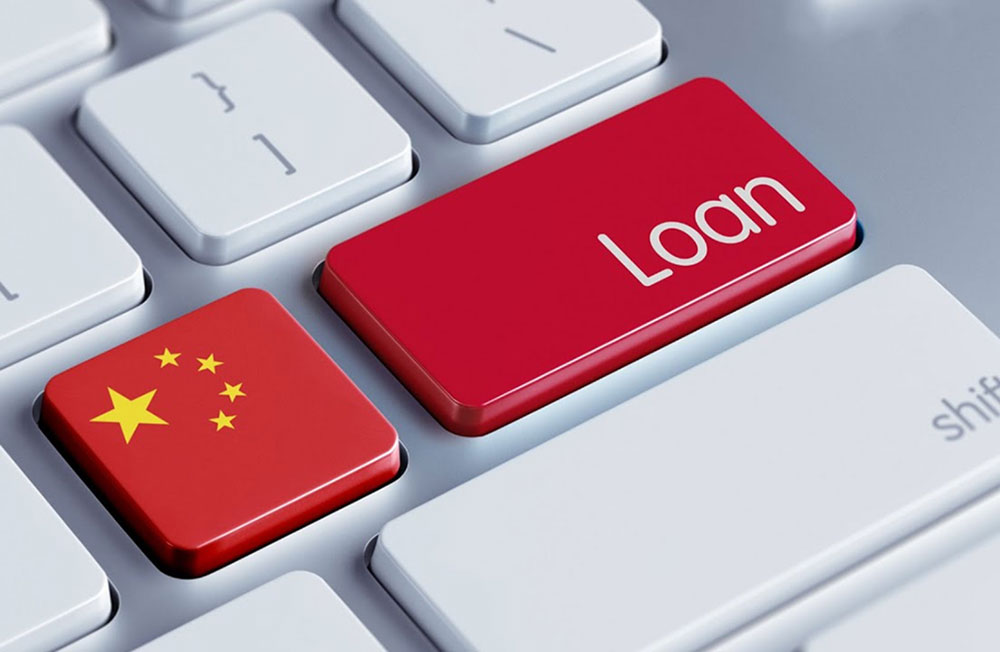
Some Sri Lanka creditors seeking debt restructuring deal without China - Bloomberg
Some members on the committee of Sri Lanka’s official creditors are pushing to reach a deal to restructure the nation’s debt without the participation of China, Bloomberg News reported on Wednesday citing people familiar with the matter.
The members want the group of major creditors, including the US, Japan and India, to sign a memorandum of understanding with Sri Lanka around the time of the International Monetary Fund and World Bank meetings scheduled for next month in Marrakesh, Morocco, said the people, who asked not to be identified as the discussions are private. China, which held about 10% of Sri Lanka’s external debt as of the end of last year, isn’t a part of the group and is pursuing separate bilateral talks.
Before the Marrakesh gathering, key debt holders excluding China are planning on putting together the draft outline and getting Sri Lanka’s consent, the people said, adding that some discord remains within the group.
An official at the Paris Club, one of the largest debt holders, said a timeline for the agreement could not be confirmed. Representatives at the IMF’s Colombo office weren’t immediately available for response.
“All creditors are engaging positively with us,” Shehan Semasinghe, Sri Lanka’s junior finance minister, said by phone when asked about the development.
It remains unclear whether the creditors have lost patience with China or if the move is a negotiating tactic to pressure Beijing to get on board. Although Sri Lanka is a relatively small economy, its debt restructuring is seen as a test case for Chinese participation in sovereign debt overhauls.
Proceeding without China — the world’s largest sovereign creditor — would mark a setback for global efforts to get President Xi Jinping’s government to join a new international system to provide relief to indebted countries that have already dragged on for almost two years. A combination of the debt hangover from the pandemic, a rising dollar and soaring US interest rates has left a growing number of poor countries without the means to pay off what they owe and in need of international help.
How China will react to the deal remains to be seen. In the past China has quietly negotiated its own opaque restructurings with its debtors, often without providing any meaningful long-term relief.
“I would re-emphasize that China supports domestic financial institutions to negotiate a settlement agreement with Sri Lanka,” Chinese Ministry of Foreign Affairs spokesman Wang Wenbin said in Beijing on Tuesday.
Sri Lanka stands to benefit from any deal with creditors, even if China is excluded. The IMF’s first on-site review of the country’s $3 billion bailout program ends Wednesday, and an agreement on debt restructuring would give hope that the South Asian nation’s recovery from an unprecedented economic crisis will get a boost before the multilateral lender gives its conclusion later this year.
Among the creditors, Paris Club members accounted for $4.8 billion, or more than 10% of Sri Lanka’s external debt, according to IMF data as of year end. That’s slightly higher than China, which stands at $4.5 billion, while India is owed $1.8 billion.
The Paris Club is an informal group of official creditors that help coordinate repayments for struggling debtor nations, and is currently comprised of 22 members including France, Japan, the UK and the US.
Depending on how talks with official creditors progress, Sri Lanka could also make headway in its negotiations with private lenders. In July, Foreign Minister Ali Sabry said private creditors had “almost agreed” to a 30% haircut.
A successful restructuring will assist Sri Lanka in regaining a measure of investor confidence after the nation fell into default for the first time in its history last year. It would also help the island nation make its debt more sustainable as envisaged in the IMF bailout secured in March, and enable a flow of funding.
If the IMF’s review is favorable, it should pave the way toward Sri Lanka getting $330 million of disbursement from the IMF, the second installment from the bailout agreement.
Source: Bloomberg
--Agencies
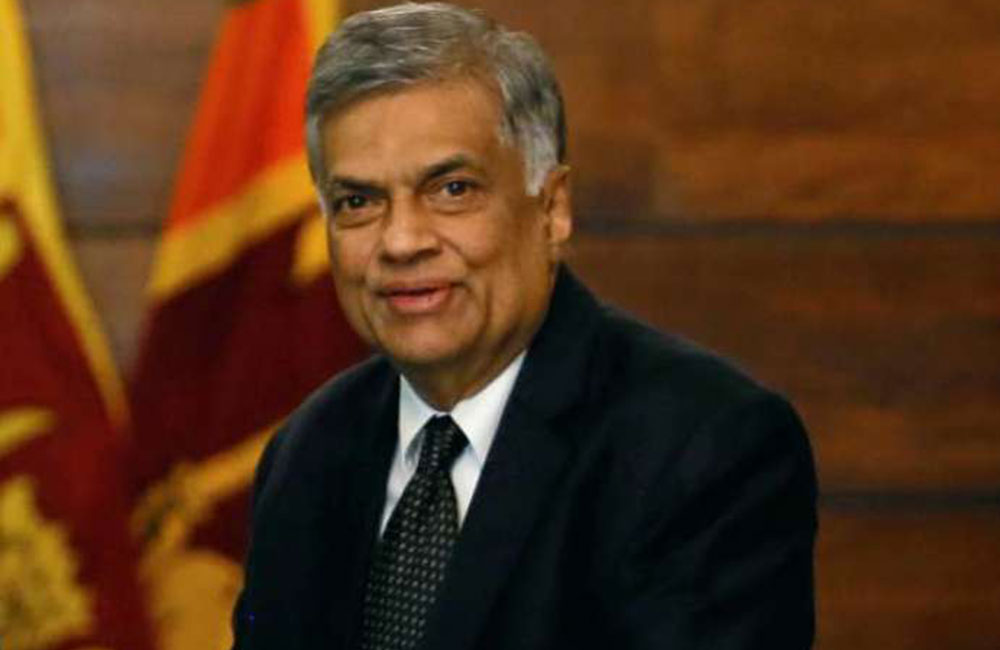
President returns to Sri Lanka following official visit to Cuba and the US
President Ranil Wickremesinghe has returned to Sri Lanka following his official visit to Cuba and the United States.
The President attended the G77 + China Leaders’ Summit in Cuba.
This summit, themed “Current Development Challenges: Role of Science, Technology, and Innovation,” was held on September 15 and 16 in Havana.
The President also participated in the 78th session of the United Nations General Assembly in the US, held from September 19 - 26 in New York.
The President held talks with several world leaders on the sidelines of the summit including UN Secretary General António Guterres.

Govt revenue in Sri Lanka for 2023 : New update
Mr. Mahindananda Aluthgamage, Chair of the Sectoral Oversight Committee on National Economic and Physical Plans, emphasized the need to establish a dedicated unit for overseeing institutions responsible for generating tax revenue, including the Inland Revenue Department.
The former minister also stressed the importance of the government taking decisive measures concerning officials who are not actively contributing to the growth of the state’s tax revenue.
Mr. Mahindananda Aluthgamage made these statements during his participation in a press conference held today (26) at the Presidential Media Centre, under the theme ‘Collective Path to a stable country.’
Expressing his views further, Mr. Aluthgamage said;
A pivotal meeting took place with President Ranil Wickremesinghe and representatives from the International Monetary Fund. These discussions yielded remarkable results. Today, they are scheduled to update the nation on the progress made in line with the government’s agreement with the International Monetary Fund.
The International Monetary Fund has emphasized three key points in their discussions. Accordingly, the government has committed to reducing inflation to single digits, bolstering foreign reserves and increasing government tax revenue.
Notably, food inflation, which previously stood at 95%, has now dipped to -5%. Overall inflation has decreased from 70% to a mere 2.6%, while foreign reserves have shrunk from 20 million to 4 billion. However, the primary focus of the International Monetary Fund remains on boosting government revenue, primarily due to the fact that 90% of government income is derived from taxes.
The government has set ambitious revenue targets, including Rs. 3101 billion from the Inland Revenue Department, Rs. 1217 billion from Sri Lanka Customs, and Rs. 217 billion from the Excise Department. Unfortunately, the current figures fall short of these expectations, with the Inland Revenue Department collecting Rs. 956 billion, Sri Lanka Customs contributing Rs. 578 billion and the Excise Department generating Rs. 109 billion, totalling only Rs. 1643 billion.
It is apparent that reaching the government’s revenue target is a challenging task. To address this, a committee has thoroughly examined the possibility of attaining the government’s revenue goal. The committee has invited the Inland Revenue Department, Customs and Excise Department, which are the primary contributors to government revenue, to discuss strategies for proper tax collection. Had these institutions implemented effective tax collection plans in 2022, they might have achieved the targeted income.
In 2022, the total number of personal tax files recorded stood at 292,000. Remarkably, in a country with a population of 22 million, this number represents just 290,000 tax files, meaning that only 10% of the eligible taxes have been paid through these files.
Furthermore, there are 105,000 registered companies, but only 15% of them are contributing to tax revenue. Astonishingly, a significant 86% of the government’s revenue is sourced from a mere 494 companies. To manage this critical task, the Inland Revenue Department employs 2,500 individuals, and these 494 institutions account for 86% of the country’s primary revenue.
Addressing irregularities within these institutions could potentially boost revenue by an impressive 500 billion. Notably, the Customs Department faces a daily loss of Rs.1 billion, totalling Rs. 180 billion in losses annually. Similarly, due to inefficiencies and irregularities, the Sri Lanka Customs incurs a yearly loss of Rs. 360 billion, while the Excise Department loses Rs. 60 million each year.
One notable example is the liquor industry, which produces 50 million bottles of liquor monthly, adding up to 540-600 million bottles annually. However, a substantial 40% of this production disappears off the books, with no state tax being collected on it.
In 2018, a sticker unit was introduced to enhance revenue collection. Initially, it led to an increase in government revenue, but it subsequently declined by 40% due to the proliferation of fake stickers. After the Excise Department was summoned before the committee, more than 40,000 counterfeit liquor bottles were seized.
The inefficiencies of these institutions are often attributed to politicians by the public. Therefore, it is crucial to monitor and implement effective programs to enhance government revenue.
The Inland Revenue Department faces the daunting task of collecting Rs. 904 billion in taxes alone. Sri Lanka is unique in allowing individuals to submit four appeals without paying taxes to the government. It takes 15 years to process these appeals, causing significant delays in revenue collection.
Therefore, there is a pressing need to establish a dedicated unit to oversee and regulate these institutions. The committee has submitted a report to President Ranil Wickremesinghe in this regard. Despite the announcement of opening 1 million new tax files after a tax increase, only 10,000 new files are expected to materialize.
Unfortunately, there hasn’t been a noticeable increase in government revenue. Several major institutions and businessmen in the country escape the scrutiny of the Inland Revenue Department and evade paying taxes. It is imperative for the department to develop a comprehensive program to address these issues.
Government revenue plays a vital role in providing subsidies, funding development activities and paying government employee salaries. The Inland Revenue Department should reconsider its approach to boosting tax revenue and it is high time for the government to take decisive action to rectify the tax collection system’s shortcomings.
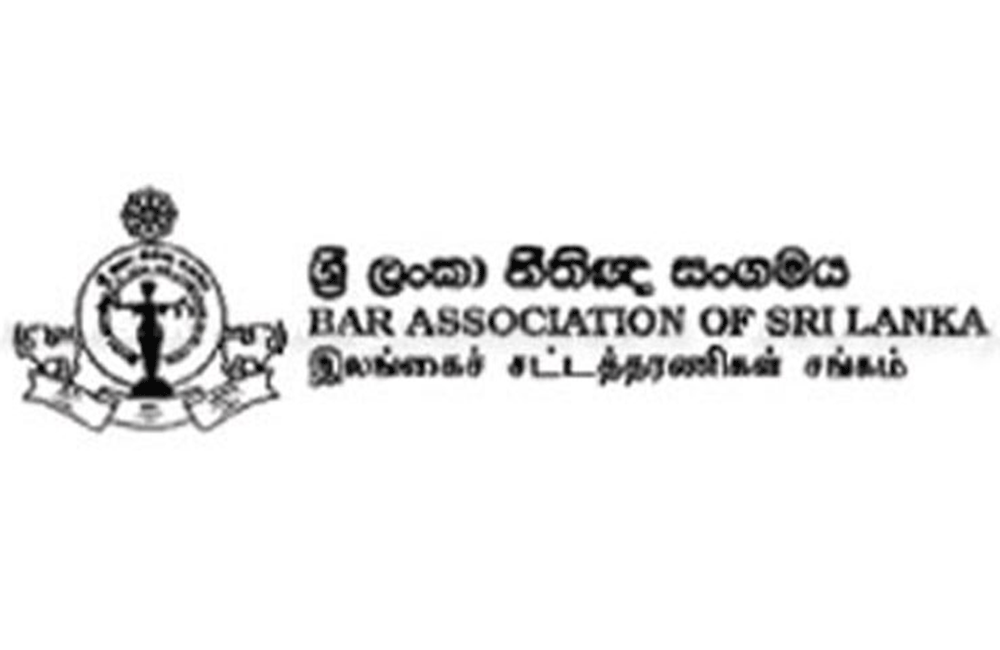
BASL calls for immediate withdrawal of Anti-Terrorism Bill and Online Safety Bill
The Bar Council of the Bar Association of Sri Lanka (BASL) has called upon the Government of Sri Lanka to immediately withdraw the Anti-Terrorism Bill and the Online Safety Bill which were published in the Gazettes issued on 15th and 18th September 2023 respectively, and not to proceed with the said Bills.
At a meeting of the Bar Council held on Saturday (23), it was unanimously resolved that both Bills seriously impinge on the liberty and freedom of the people and will have a serious impact on democracy and the rule of law in the country, BASL said in a statement.
“It is observed that both Bills have been introduced without due consultation with the stakeholders including the BASL. Further, the BASL’s observations on the previous version of the Anti-Terrorism Bill have also not been considered,” it said.
The Bar Association of Sri Lanka has called upon the Government to have a meaningful consultation with the relevant stakeholders including the BASL and to take into consideration their concerns prior to proceeding to Gazette such Bills, which it says have a serious impact on the community at large.
(adaderana.lk)

Budget 2024 : Dates announced
The government will present the Appropriation Bill for the financial year 2024 to Parliament in November.
State Minister of Finance Ranjith Siyambalapitiya stated that the 2024 Budget speech will commence on November 13, 2023.
He further stated that the debate on 2nd reading of the Appropriation Bill will be held from 14 to 21 November, while the vote on the 2nd reading will be held on November 21.
The debate on the 3rd reading will be held from November 22 to December 13, the State Minister added.
Earlier today, the Cabinet of Ministers announced that approval has been granted for the submission of the Appropriation Bill for the year 2024 to Parliament.
According to the government, the Cabinet gave approval at their meeting held in July 2023 to draft the bill of appropriation for the financial year 2024.
Clearance of the Attorney General was thereafter received for the draft appropriation bill for the financial year 2024 prepared by the Legal Draftsman.
President Ranil Wickremesinghe, in his capacity as the Minister of Finance had presented a proposal to the Cabinet to publish the draft bill in the government gazette notification and subsequently to table the same in the Parliament for its approval.
Taking up for consideration the President’s proposal, the Cabinet granted approval to submit the 2024 appropriation bill to Parliament for approval.
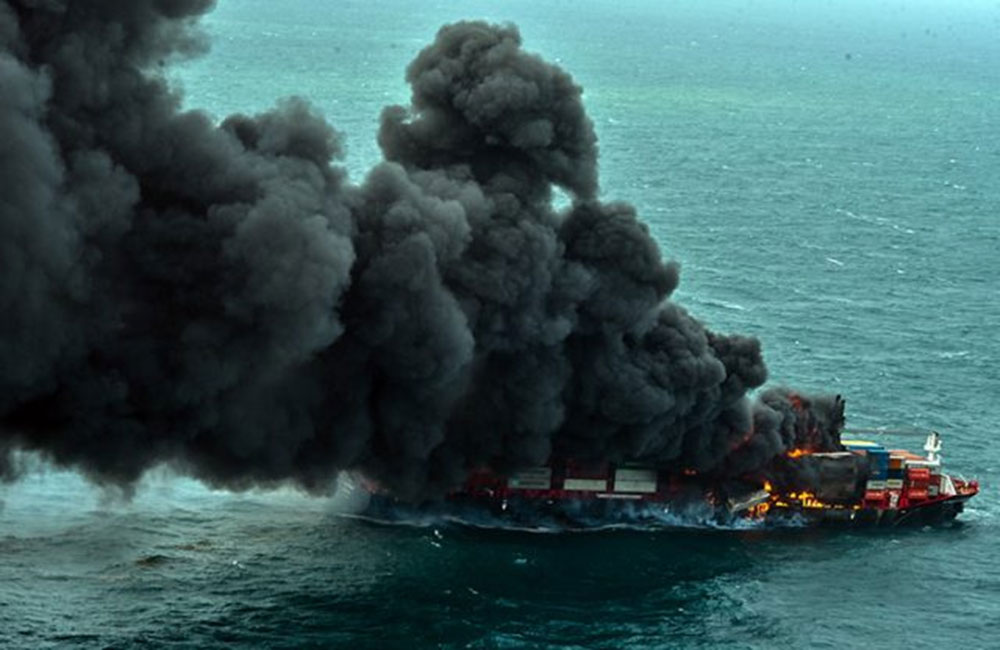
Ex-operators of X-Press Pearl make further payments to Sri Lanka
X-Press Feeders, former operators of the container ship 'X-Press Pearl', through the vessel owner’s P&I insurers, have made two further payments to the Sri Lankan government for claims relating to beach clean-up operations.
The payments totalling USD 878,650.53 and LKR 16,315,451.05 relate specifically to claims lodged by the Marine Environment Protection Authority of Sri Lanka in relation to beach cleaning and rehabilitation works in the aftermath of the sinking of the X-Press Pearl.
Resolution of these claims was discussed in recent meetings between a Sri Lankan Government delegation and representatives of the ship owners and their insurers in Singapore on the 18th and 19th of July 2023. Assessments on the payment of further claims are ongoing, with all legitimate claims being considered.
Meanwhile, a caretaker tug remains at the site monitoring the situation until the conclusion of the southwest monsoon season, when work will recommence to lift the remaining fore section of the wreck and transport it to a certified decommissioning facility for dismantling, recycling, and disposal.
Incident Overview
On May 20, 2021, the Singapore -flagged Containership, 'X-Press Pearl' reported smoke from the cargo hold while at Colombo anchorage, Sri Lanka.
Emergency procedures were initiated, and Co2 released in the cargo hold. Port control and the local authority were informed, and Sri Lankan navy assets along with firefighting teams were placed on standby.
On May 21, the vessel reported fire on deck. Firefighting tugs were deployed by the port authority and a helicopter providing support to help fight the fire. The ship's crew assisted with boundary cooling of the area.
The Harbour Master and Sri Lankan Navy were on standby to assist in case of evacuation.
Fire and chemical experts were contacted by the vessels operators, and Smit Salvage were appointed as Salvors.
On May 22, the sound of an explosion was heard in cargo hold #2.
Tugs continued the firefighting operation with Posh Teal, Posh Hardy, Megha, Hercules, Mahawewa deployed.
12 crew members disembarked from the vessel on May 23 to make way for a 12-person firefighting team. The firefighting team continued the operation in conjunction with water spraying tugs on site.
By May 24, the fire had intensified and was spreading toward the aft of the vessel.
A further and louder explosion was heard on May 25, and as a prudent measure, it was decided to evacuate all 13 crew and the firefighting team of 12. The crew and firefighting team were transferred to a quarantine facility ashore. Unfortunately, two crew members suffered leg injuries during evacuation and were taken to hospital for attention. All were reported to be in stable condition.
Firefighting tugs were operating on-site throughout May 26, with the assistance of Sri Lankan Navy helicopters and vessels and two Indian Coastguard vessels. To assist with the shoreline cleanup, three JCB diggers are provided to the MEPA for use by the mobilised defence force personnel. Due to the lockdown in Sri Lanka, only machinery can be provided, not manpower.
On May 27, efforts to extinguish the fire onboard were ongoing with firefighting tugs, the Sri Lankan Navy and Indian coastguard remaining on scene. All measures were being taken to save the vessel and cargo and protect the marine environment, and it appears that the onboard fire has diminished somewhat.
An inspection team were able to board the vessel on the afternoon of Tuesday, June 1, and reported the engine room flooded. There are concerns over the amount of water in the hull and its effect on the ship's stability. Efforts to make a connection for towing failed after several attempts due to the tug's movement caused by the swell. The operation was aborted for safety reasons.
Despite salvors subsequently boarding the vessel on June 2 and attaching a tow wire, efforts to move the ship to deeper waters failed, and the ships aft portion sank to the bottom at a depth of 21 meters. As of 1500 Sri Lanka time, the forward area of the vessel remained afloat with smoke coming out of Cargo Holds No 1 and 2.
Salvors remain on scene to deal with any possible debris supported by the Sri Lankan Navy and the Indian Coast Guard, who have oil spill response capabilities on standby.
Oil Spill Response Limited is appointed to respond to any possible spill and is liaising with ITOPF, who will provide technical expertise. Both OSRL and ITOPF have people on the ground in Colombo coordinating with the Sri Lankan Navy on an established plan to deal with any possible spill of oil and other pollutants.
On June 4, the ships aft portion remains on the seabed at a depth of about 21 meters, and the forward section continues to settle down slowly. Salvors were able to retrieve the anchor.
Navy divers retrieve the vessel's VDR on June 6 with still no signs of debris or fuel oil spill.
Page 247 of 681